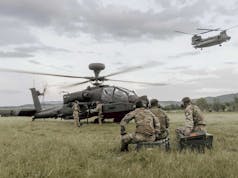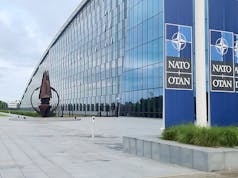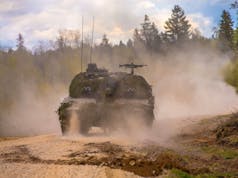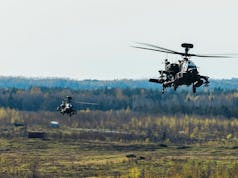The leaking of the appointment of Admiral Sir Tony Radakin as Chief of the Defence Staff to the Daily Telegraph – the paper of choice for the military community in which it can read what it wants to hear – before the official announcement had the usual Bufton Tuftons spluttering in their leather armchairs.
“Disgraceful!” they shouted in unison to no-one in particular. “Is nothing sacrosanct any more?”
Well, no it isn’t actually, and the Ministry of Defence and the three services are mainly to blame. I have written previously on the military’s unwillingness and/or inability to connect with the fourth (1) estate and its failure to embrace the workings of social media (2) and do not intend to cover the same old ground again. Suffice to say that the nub of the problem seems to be, to me anyway, that the military likes to operate on a need to know’ basis whilst the media works on a diametrically opposite ethic – the public has a right to know.
This article is the opinion of the author and not necessarily that of the UK Defence Journal. If you would like to submit your own article on this topic or any other, please see our submission guidelines.
The author, Stuart Crawford, was a regular officer in the Royal Tank Regiment for twenty years, retiring in the rank of Lieutenant Colonel in 1999. Crawford attended both the British and US staff colleges and undertook a Defence Fellowship at Glasgow University.
Previously, the military had a stranglehold over much of the reporting of military matters because it controlled communications from conflicts in which it was engaged. The Falklands War of 1982 is a classic example. However, the advent of mobile phones and social media broke that hold decisively. Now anyone can report from anywhere, and military personnel of all ranks are avid users of social media. I think this is exactly as it should be in a liberal democracy.
I also have to ask what real difference the leaking of the CDS appointment makes anyway, and the answer seems to be none. It was hardly a matter of opsec or national security. People got miffed because information withheld is power, and that power was removed from them before they could revel in their own importance. Only they care.
I don’t think leaking non-op stuff is really that important, and there are aspects of it which may relate to the glacial pace of MoD media comms practices. I mean, if the information is to hand why not release it immediately? In our brave new world of rolling news 24/7 the public has become used to instantaneous news when and where they want it, and perhaps the MoD’s media communications attitudes and practices need to come into the 21st century, dragged screaming and biting if need be.
There have also been hints of favouritism, by which I mean that certain correspondents and outlets seem to be favoured for leaks. Well, as any half-decent PR or media comms person will tell you, cultivating the correspondents and outlets in which you hope to get positive coverage is a basic requirement of the trade.
Everybody does it, so maybe we shouldn’t be surprised if some newspapers and broadcasters seem to get more than their fair share of the headline-grabbing stories. In return, it’s fair to expect a fair hearing and the benefit of the doubt when things go awry. It’s how the game is played.
It wouldn’t totally surprise me if we find that the “leakers” are actually on the payrolls of some of the outlets. That’s how they work, and I know this because I am (although me being retired makes it a different thing I agree). And if they’re prepared to take me on their payrolls, I who am about as far away from the centre of military decision making in the UK as is possible, then who knows what incentives might be offered to those closer to the centre?
I have no proof, of course, but arguably there wouldn’t be any need for any of this if the MoD comms operation was a bit slicker in the first place?
I need to touch again on social media. As I have written before, the military has only half-embraced social media. It sees it still as a one-way conduit for information promulgation; in other words, a send only medium. If you respond or try to engage in any way with what is being put out there is little chance of a reply.
If you don’t believe me try it for yourself, respond to something appropriate on Twitter and tag in the Army Director Engagement & Communications (Major General Neil Sexton @neilsexton659) or the Colonel Army Communications (Colonel Dom Coombes @ArmyComms_Col) and see if they get back to you. I’d advise you not to hold your breath.
The military still wants to control social media within the organisation, it seems to me, but the truth is it can’t. The cat is out of the bag. Any sailor, soldier, or airperson (sic) can set up an account under a nom de plume and critique their organisation and the chain of command to their heart’s content. It cannot possibly be policed, so it’s a case of either accept the fact or not participate at all. There’s no middle ground.
Finally I should come back to Hew Strachan and Ruth Harris’ excellent Rand Corporation publication The Utility of Military Force and Public Understanding in Today’s Britain (see footnote 1). It hardly needs stating that the whole thing is worth a read, but in particular the following quotation has stuck with me: “Those in uniform should be able to speak directly to the press, and should receive training to do so”.
Note that it does not say that this should be the bailiwick of senior officers or military comms and PR people, in fact it is non-specific and applies, therefore, to all ranks and all positions.
The truth of the matter is that oftentimes the private soldier who has just participated in the firefight is far better placed to comment to the media on what has happened at his level than the higher echelons usually entrusted with such matters. With the correct training and within the appropriate guidelines we should be encouraging our boys in girls in uniform to do so.
Time to stop seeing the media as the enemy and regard them more as friendly forces.
As for the leaking of senior appointments from inside the MoD? It’s just not that important to be getting our knickers in a twist over, is it?
Footnote 1: The British Army and the Media - The Longest War (ukdefencejournal.org.uk) Footnote 2: Military Struggles with Social Media - An analysis (ukdefencejournal.org.uk)













It would perhaps help if those who “run” media ops had some experience of the military, which based on some of the posts seems to be lacking. Posting a couple of savvy Cpls, Sgts/SSgts (and RAF/RN Equivalents) would certainly help to ensure that equipment is correctly identified, and the correct terminology is used. Just because it has tracks, doesn’t mean it is a Tank.
Ironically media freedom will probably be liberal democracies undoing, should we end up in near peer conflict the amount of information a enemy would be able to gather from the social and traditional media these days in vast. Whilst in the US is struggling to determine if China tested a Fractional Orbital Bombardment Weapon in August, China would have no such problem if the US or allies had conducted a similar test.
The media (in the UK) have always got off on bashing the military, the only exception is when there is an embedded correspondent who gets to understand what the guys are all about and what they have to go through to get that job done. This is only done in times of war when the government is reliant on the military to do the job that they are paid to do, despite the self same government handicapping the military with endless cutbacks for the last 50 years.
I think the military would have more respect for the media if they (journalists) were more professional about checking the facts and what was reported, as well as professionalism in understanding the consequences of what is reported, instead of racing to publish. Servicemen and women are trained to check, check and check again, and they can’t abide by laziness in reporting – so they’re not interested in engaging.
Trouble is if journalists did a factual job the story wouldnt be much of a story.
They are trained in the art of misrepresentation to keep just enough of the facts in the body of the text so they arent breaching the laws but the headline/clickbait title can basically read whatever it wants.
Even as an apprentice, we were taught how to respond to the military. It was recognised that anyone could have a camera shoved under their nose. This was long before the digital age. New Labour shifted the goal posts when it started to corral journalists into pools and news-manage. Suddenly, dealing with the press was above everyone’s pay grade. The idea that everyone should get media training is NOTHING new.
Since then, the biggest problem with the MOD’s output is how patronising and simplistic it is. Typically, it is over-enthusiastic and over-promotes ‘good’ news (“The RAF gets the world’s most advanced missile.”). Or, the emphasis is wrong; industrial work-share should take second place to what is the benefit to the military.
That, or it obfuscates; if someone raises a serious issue in the press, there’ll be a terse and often entirely unsatisfactory response that doesn’t address the issue raised.
In short, it either grossly over-states or significantly falls short. It’s not fit for purpose.